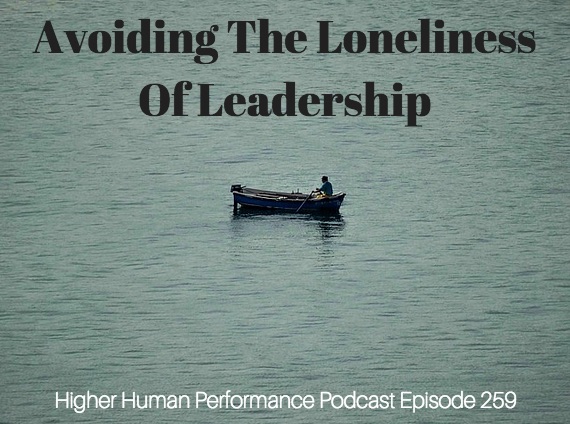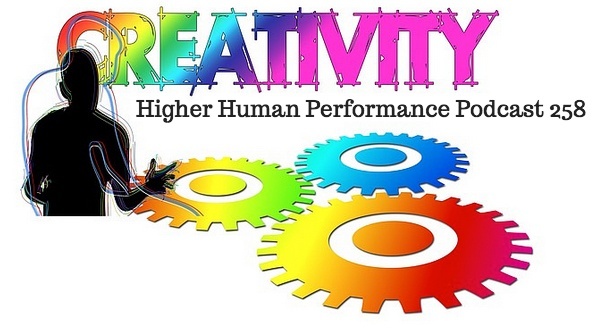264 Unforgettable: The Value Of Sequential Marketing
Podcast: Play in new window | Download ()
Subscribe: Apple Podcasts | Spotify | RSS | More

People stop buying from you for the following reasons:
a) They had a poor experience the last time they bought from you, so they don’t come back.
b) They don’t need your products or services any more.
c) They moved.
d) They shop price and have gone to a new lower priced provider.
e) They died.
f) They forgot about you.
It’s that last one that I want to talk about. “How can they forget about us? We’ve been in business since 1938,” said the business owner. The store was located in a market of about 200,000 people. The owner assumed everybody knew all about his business. Because his store had been a fixture in the market for over 70 years he wrongfully concluded that nobody could forget about him. He was wrong.
A casual meeting with the staff revealed that frequent comments were made by shoppers, “You guys are still here? My parents used to shop here. We didn’t know you guys were still around.” In these cases, another generation of shoppers had emerged who simply didn’t think of this store.
Markets, like businesses, are alive. Organic. They’re fluid and always moving.
We can’t assume our business will thrive today just because it’s been around for 70 years. Like people, businesses can grow old and die. Some die of natural causes. Some die due to neglect and abuse. Others are murdered by competition. The job of the business owner is to protect the business – maintain the heath of the company. Part of that job is making sure the market doesn’t forget about the business.
One way to do that is by using sequential communication. Sequential simply means regular, consistent and one after another consistently. Communication can take on many different forms. It could be in traditional advertising such as newspaper advertising, radio or TV spots – or maybe direct mail. It could be in other communications that you don’t think of very often. For instance, it could be the way your phones are answered, the way your employees greet shoppers and all the various scripts that might exist to convey information to your prospects, shoppers and customers. Communication includes how your business cards look, and the message they convey. It includes the message or music used when you put callers on hold. It includes the messages that appear on your sales invoices. The cleanliness and order in your business also conveys important messages to the people who visit your business. Frankly, every interaction with prospects, shoppers and customers screams a message about your business.
Some businesses make the mistake of failing to have congruent messages. That is, they say one thing, but do something else. They may say they’re the lowest price, but shoppers may find it’s just a slogan. They may say they’re fast, but buyers may find their execution is slow. Make sure your business is making good on whatever promises are made by your marketing efforts. Talk is cheap. Your actions must be in step with your marketing promises.
Consistency is a key component in the battle against being forgotten. Part of the challenge of consistency is finding something that works. Businesses tend to chase the quick fix. An owner tries a marketing strategy – let’s say, a direct mail campaign – and it fails. Immediately, he’s looking for a different strategy. However, it could be that the offer wasn’t compelling. It’s the classic case of blaming the messenger for the message. Direct mail is still an effective marketing tool, but the very best list in the world can’t convert if the offer is poor.
Sequential communication, as I’m using it here, is an old concept. It simply means that we don’t just communicate with our prospects once, then hope for the best. It means we plan a series (a sequence) of communications all designed to generate business. The objective is to generate buying customers!
As old as this idea is I’m finding more and more business owners who have never heard it. Trust me. This is not an original idea. My career only goes back to the early 70’s, but it seems I’ve known of this strategy forever. We’ve got some advanced tools today to help us execute it better, but the idea is relatively unchanged.
Here’s the recipe:
1. Contact your list with an offer. This offer can be made via direct mail or via email. It should be made directly to the prospect though. Make the offer as compelling as possible. Spend some time on the offer so it’s unique and not some “me-too” campaign. Build in a way to track the response. You want to know who responds and who does not.
2. Plan a second communication only to the people who failed to respond to the first offer. This is where some business owners fail to see the logic of sequential communication. Many of them see it as a wasted effort. No, it really makes sense if you’ll stop to think about how people behave.
Have you ever asked somebody for something, or invited somebody to something – and they were non-responsive? Sure, it’s happened to all of us. Sometimes they just don’t want to do whatever we’re asking. But other times, they’re doing what we all do. They’re neglectful, forgetful and they procrastinate. Why do you suppose your dentist sends you a postcard reminding you of an appointment you made months ago to have your teeth cleaned? Why do you suppose that same dentist will have somebody call you the day before? Man, they already sent me the postcard. That phone call following the postcard is sequential communication. It’s what brings you back to the same dentist time and again. They’re continuing to make contact and keeping you in the fold of their business. You are their customer and the sequential communication is a crucial part of their strategy to protect their most prized asset – their customer base.
That’s exactly what you want to do for your business. Some people will neglect your first offer. Regardless of the offer, they’ll just fail to act. Maybe they’ll think of accepting your offer when they first see it, but life will take over and they’ll forget. Timing is everything. Sometimes our offer just arrives at the wrong time. You can’t catch everybody at the right time.
When you send your follow-up communication you’re reminding them that you’re still standing ready to serve them. You’re refusing to let them forget about you.
I’m not talking about two different offers. This is the same offer. In fact, it’s important that your second communication remind the prospect that you’ve offered them this before. I suggest that you keep the second communication within 2 weeks of the first one. I have heard of a few businesses that have successfully followed up with a reminder communication beyond 2 weeks, but I think it’s dangerous. Why? Because when 2 weeks have passed the prospect will see it as a brand new offer instead of a reminder of the offer you made earlier. You lose the value of sequential communication when you wait too long. The objective is to make the communication a reminder, not a completely new offer.
Give prospects a reason for the reminder. You have to answer the “why?” question for the prospect. When we get the phone call from our dentist, after we’ve already been sent the postcard – we know exactly why they’re calling us. Apply that same logic in your sequential communication. Help prospects see the clear logic of the second communication.
Let me interject here that I know businesses who have successfully used a series of communications – either direct mail or email – to increase their conversions. Instead of sending one follow-up message, they send more. In some cases, quite a few more.
One of the most discussed topics in marketing is how much communication is too much. You’ll have to judge that for yourself. My thought is, if your offer is compelling enough then it’s hard to over do it. If your best friend was neglecting to take advantage of some offer that you thought was really valuable – would you bug them until they finally told you, “I’m not interested” or would you just let them neglect to take advantage of the deal? Most of us would bug them by telling them how crazy they are if they don’t jump on it. Make sure your offer is compelling, then give prospects every possible consideration to accept it.
Think about how often you reach out and touch prospects. Pay attention. Remember, your first offer will likely hit some people at the wrong time. It may not mean they’re uninterested. It may mean they’re just distracted. Give yourself the best chance to be memorable. Refuse to let people forget about you.
By the way, if you’re operating an organization in a space that doesn’t involve selling something for money, sequential marketing is still highly valuable. Establishing ongoing, profitable communication with the people you serve is crucial in order to be top-of-mind with them.
When I was still a teenager I learned a valuable lesson about selling hi-fi gear. It was quite by accident, but it proved invaluable to me through the years.
At the time mail order houses were the bane of the local retail hi-fi store. People would shop at a local store, listen to the gear they were thinking of buying, then call an 800 number in New York City to get a deep discount on the exact same item. We were used to these things, but knew if we did our job well then we’d likely be able to influence shoppers to buy from us based on a variety of things we could do that the New York mail order houses wouldn’t. For starters, if there was a problem, the shopper knew they could return the item. But that wasn’t the lesson I learned. I learned something far simpler and more powerful.
If I educated the shopper about a feature that meant quite a lot to them I got the credit for that feature. Let’s suppose you cared nothing about the tuner section of a receiver – that is, the radio part of it. I could drone on and on about that and it wouldn’t resonate with you. But if I found out you were really into the preamp section of the unit because records were your thing, then I might mention how a particular unit was known for having a superior preamp section. You’d perk up and pay closer attention. I had already learned the power of asking questions and listening in order to find out what mattered most to shoppers. But now I was learning that if I told you about a feature or benefit that was critical to you, then you’d give me credit for that. It was as though I had personally engineered that feature or benefit into the gear just for you.
Here was the magical thing about it. You could go find that unit cheaper in the back of a stereo magazine and buy it from somebody you’d never met in New York City. Or you could come see me, a guy who had sat with you in a sound room listening with you to your favorite records, and buy from a person who had told you about a specific thing that really mattered to you. By getting credit for the most valuable feature or benefit, you remembered me. And hopefully, it resulted in you becoming my customer.
So it’s not always about being a purple cow. And it’s not about doing something insanely out of the ordinary. Putting the people you serve at the forefront of your efforts is the key. Making it about them, not you. You’ll be remarkable and unforgettable by focusing on helping others in the most selfless way possible. Why? Because it’s rare. It’s unique. And it always will be.
Reach out to serve. Yes, it’s marketing, but it’s because you’ve got something others need and want. Don’t deny them the opportunity to experience what you can do for them. Get in touch. Stay in touch. And don’t stop until they opt out or tell you to quit. Those who opt out or tell you to quit weren’t going to let you serve them anyway so don’t fret about what you fear you may have lost. You’ve lost nothing. You’ve gained tighter focus on those who are most interested in what you have to offer.

Leave A Review For This Podcast
Click here and you’ll be taken to the iTunes page where you can easily leave a 5-star review.
264 Unforgettable: The Value Of Sequential Marketing Read More »







 Innovation in the workplace has been a hot topic during my entire career. It accelerated when the digital age arrived, but it was present long before that. Some of us are old enough to remember a time when our businesses operated with manual, handwritten spreadsheets, telephones and postal service mail. Facsimile machines arrived and suddenly communication got faster. Computers arrived and with it a piece of software called VisiCalc, the first electronic spreadsheet. That made every act of accounting – including inventory control and payroll – faster!
Innovation in the workplace has been a hot topic during my entire career. It accelerated when the digital age arrived, but it was present long before that. Some of us are old enough to remember a time when our businesses operated with manual, handwritten spreadsheets, telephones and postal service mail. Facsimile machines arrived and suddenly communication got faster. Computers arrived and with it a piece of software called VisiCalc, the first electronic spreadsheet. That made every act of accounting – including inventory control and payroll – faster!


 We form habits that work for us on some level, but foil our improvement in others. One of my more recent favorite books is entitled,
We form habits that work for us on some level, but foil our improvement in others. One of my more recent favorite books is entitled, 

 There was also creativity in the presentation of the music. It started the moment I removed the vinyl from the album sleeve. I never touched anything other the very edges of the album with my outstretched palms or fingertips. Yes, it had technical merits of keeping the oil of your skin off the vinyl, but it also showed the average shopper who likely didn’t handle their vinyl properly…how to do it right! It was part presentation, part education.
There was also creativity in the presentation of the music. It started the moment I removed the vinyl from the album sleeve. I never touched anything other the very edges of the album with my outstretched palms or fingertips. Yes, it had technical merits of keeping the oil of your skin off the vinyl, but it also showed the average shopper who likely didn’t handle their vinyl properly…how to do it right! It was part presentation, part education.